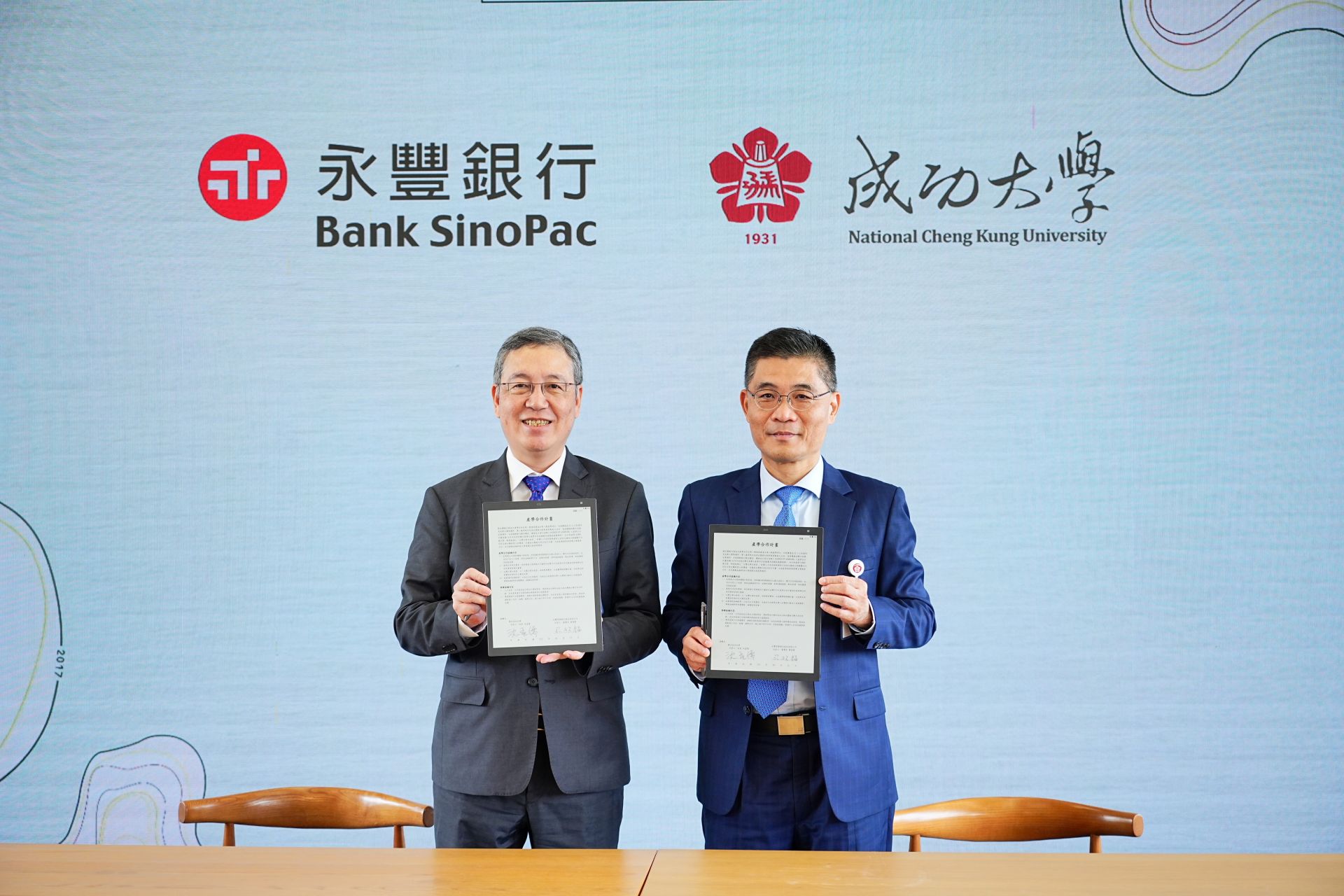SDG4
Professor Mei-Ying Wu of the Taiwanese Literature Department: Exploring Taiwanese Children's Literature
National Cheng Kung University (NCKU) Professor Mei-Ying Wu, specializing in Taiwanese children's literature for 20 years, was honored with the Outstanding Research Award from the National Science Council for the year 111. She is the first humanities professor at NCKU to receive this prestigious award. In Taiwan, research on children's literature is relatively rare, even within the realm of Taiwanese literature studies. Professor Wu's recognition has brought fresh attention to the field and sparked curiosity about children's literature among various circles.
According to the classification framework of the Humanities and Social Sciences Development Department of the National Science Council, "Children's Literature" is one of the over 200 sub-disciplines under the "Literature I" category. Currently serving as the Director of the Chinese Language Center at NCKU, Professor Wu's research focuses on Taiwanese children's literature and childhood culture, striving to bring Taiwan's children's literature to the world's attention. Her recent research has shifted towards discourse on "World Literature," intending to explore more complex issues such as transnational cultural production and cultural hybridization through Taiwanese picture books. Professor Wu believes that children's literature is not merely about studying "children's books" or exploring the idyllic imagination of "childhood." In contrast to the origins of European and American children's literature research in the early 20th century, the development of Taiwanese children's literature represents a "new frontier in humanistic studies" on the international stage. Reflecting on the interconnected development of post-war Taiwanese children's literature and international trends, children's literature in Taiwan presents vast opportunities for exploration.
In 2017, Professor Wu published the academic monograph "Subjectivity, Gender, Local Discourse, and (Post)modern Childhood Imagination: A Study of Post-war Taiwanese Juvenile Novels," which meticulously examines the construction process of the "child" image and the historical transitions in the perception of "childhood innocence" in juvenile novels by different generations of authors in Taiwan since the 1960s. Despite her 20 years of research, Professor Wu still finds Taiwanese children's literature to be a "fresh, modern, and contemporary concept." From a textual perspective, the stories in Taiwanese children's literature are just as captivating and engaging as contemporary Western literature. For instance, the first Taiwanese youth novel considered a local creation, "Ah-Hui's Heart" by Lin Chung-lung, vividly portrays the tumultuous growth journey of the youth Ah-Hui under delicate storytelling, reminiscent of the Taiwanese version of Harry Potter in Professor Wu's eyes.
Furthermore, Professor Wu also focuses on the establishment and development of Taiwanese children's literature in the early post-war period. Her research indicates that the journey of Taiwanese children's literature post-war can be traced back to the establishment of the Children's Reading Material Editing Group by the Taiwan Provincial Department of Education (now the Ministry of Education) in 1964. Through theoretical critiques, combined with examinations of the spatiotemporal context and historical archival research, Professor Wu analyzes the development of post-war Taiwanese children's literature in connection with American cultural influences. As Taiwanese stories were translated and marketed in the United States, Southeast Asia, and other regions, Professor Wu's research also explores the mutual generation relationship between Taiwanese children's literature and Asia.
From children's literature, post-war Taiwanese children's literature to current world literature, Professor Wu's research has always maintained international interaction and dialogue. She says, "Children's literature is like an umbrella," encompassing various research perspectives. Scholars engaged in children's literature research internationally are adept at listening and eager to share, fostering a positive sense of happiness through knowledge exchange. Reflecting on her journey from a novice researcher in children's literature to a promoter of "Taiwanese children's literature" on the international stage, Professor Wu recalls an important turning point in 2005. She received an email from Perry Nodelman, a renowned international scholar in children's literature, after submitting an abstract for a paper. This marked the beginning of her active participation in international conferences organized by the Children's Literature Association (ChLA) and her eventual nomination and election as a member of the ChLA International Committee in 2008, where she organized the "Taiwan Focus Country Panel" in 2011.
Grateful for the encouragement and recognition from international senior scholars and research partners from around the world, Professor Wu expresses, "I am incredibly fortunate to witness the vast world in the small world of children's literature research, to meet and collaborate with top scholars domestically and internationally in my academic career, and to maintain my passion for literature research under the encouragement and support of senior scholars." Finally, Professor Wu excitedly mentions that 2024 marks the 60th anniversary of the establishment of the Children's Reading Material Editing Group by the Taiwan Provincial Department of Education, suggesting the importance of seizing the opportunity to interview key figures in the development of Taiwanese children's literature from that era. Her enthusiasm for seeking knowledge shines through her academic pursuits.
According to the classification framework of the Humanities and Social Sciences Development Department of the National Science Council, "Children's Literature" is one of the over 200 sub-disciplines under the "Literature I" category. Currently serving as the Director of the Chinese Language Center at NCKU, Professor Wu's research focuses on Taiwanese children's literature and childhood culture, striving to bring Taiwan's children's literature to the world's attention. Her recent research has shifted towards discourse on "World Literature," intending to explore more complex issues such as transnational cultural production and cultural hybridization through Taiwanese picture books. Professor Wu believes that children's literature is not merely about studying "children's books" or exploring the idyllic imagination of "childhood." In contrast to the origins of European and American children's literature research in the early 20th century, the development of Taiwanese children's literature represents a "new frontier in humanistic studies" on the international stage. Reflecting on the interconnected development of post-war Taiwanese children's literature and international trends, children's literature in Taiwan presents vast opportunities for exploration.
In 2017, Professor Wu published the academic monograph "Subjectivity, Gender, Local Discourse, and (Post)modern Childhood Imagination: A Study of Post-war Taiwanese Juvenile Novels," which meticulously examines the construction process of the "child" image and the historical transitions in the perception of "childhood innocence" in juvenile novels by different generations of authors in Taiwan since the 1960s. Despite her 20 years of research, Professor Wu still finds Taiwanese children's literature to be a "fresh, modern, and contemporary concept." From a textual perspective, the stories in Taiwanese children's literature are just as captivating and engaging as contemporary Western literature. For instance, the first Taiwanese youth novel considered a local creation, "Ah-Hui's Heart" by Lin Chung-lung, vividly portrays the tumultuous growth journey of the youth Ah-Hui under delicate storytelling, reminiscent of the Taiwanese version of Harry Potter in Professor Wu's eyes.
Furthermore, Professor Wu also focuses on the establishment and development of Taiwanese children's literature in the early post-war period. Her research indicates that the journey of Taiwanese children's literature post-war can be traced back to the establishment of the Children's Reading Material Editing Group by the Taiwan Provincial Department of Education (now the Ministry of Education) in 1964. Through theoretical critiques, combined with examinations of the spatiotemporal context and historical archival research, Professor Wu analyzes the development of post-war Taiwanese children's literature in connection with American cultural influences. As Taiwanese stories were translated and marketed in the United States, Southeast Asia, and other regions, Professor Wu's research also explores the mutual generation relationship between Taiwanese children's literature and Asia.
From children's literature, post-war Taiwanese children's literature to current world literature, Professor Wu's research has always maintained international interaction and dialogue. She says, "Children's literature is like an umbrella," encompassing various research perspectives. Scholars engaged in children's literature research internationally are adept at listening and eager to share, fostering a positive sense of happiness through knowledge exchange. Reflecting on her journey from a novice researcher in children's literature to a promoter of "Taiwanese children's literature" on the international stage, Professor Wu recalls an important turning point in 2005. She received an email from Perry Nodelman, a renowned international scholar in children's literature, after submitting an abstract for a paper. This marked the beginning of her active participation in international conferences organized by the Children's Literature Association (ChLA) and her eventual nomination and election as a member of the ChLA International Committee in 2008, where she organized the "Taiwan Focus Country Panel" in 2011.
Grateful for the encouragement and recognition from international senior scholars and research partners from around the world, Professor Wu expresses, "I am incredibly fortunate to witness the vast world in the small world of children's literature research, to meet and collaborate with top scholars domestically and internationally in my academic career, and to maintain my passion for literature research under the encouragement and support of senior scholars." Finally, Professor Wu excitedly mentions that 2024 marks the 60th anniversary of the establishment of the Children's Reading Material Editing Group by the Taiwan Provincial Department of Education, suggesting the importance of seizing the opportunity to interview key figures in the development of Taiwanese children's literature from that era. Her enthusiasm for seeking knowledge shines through her academic pursuits.
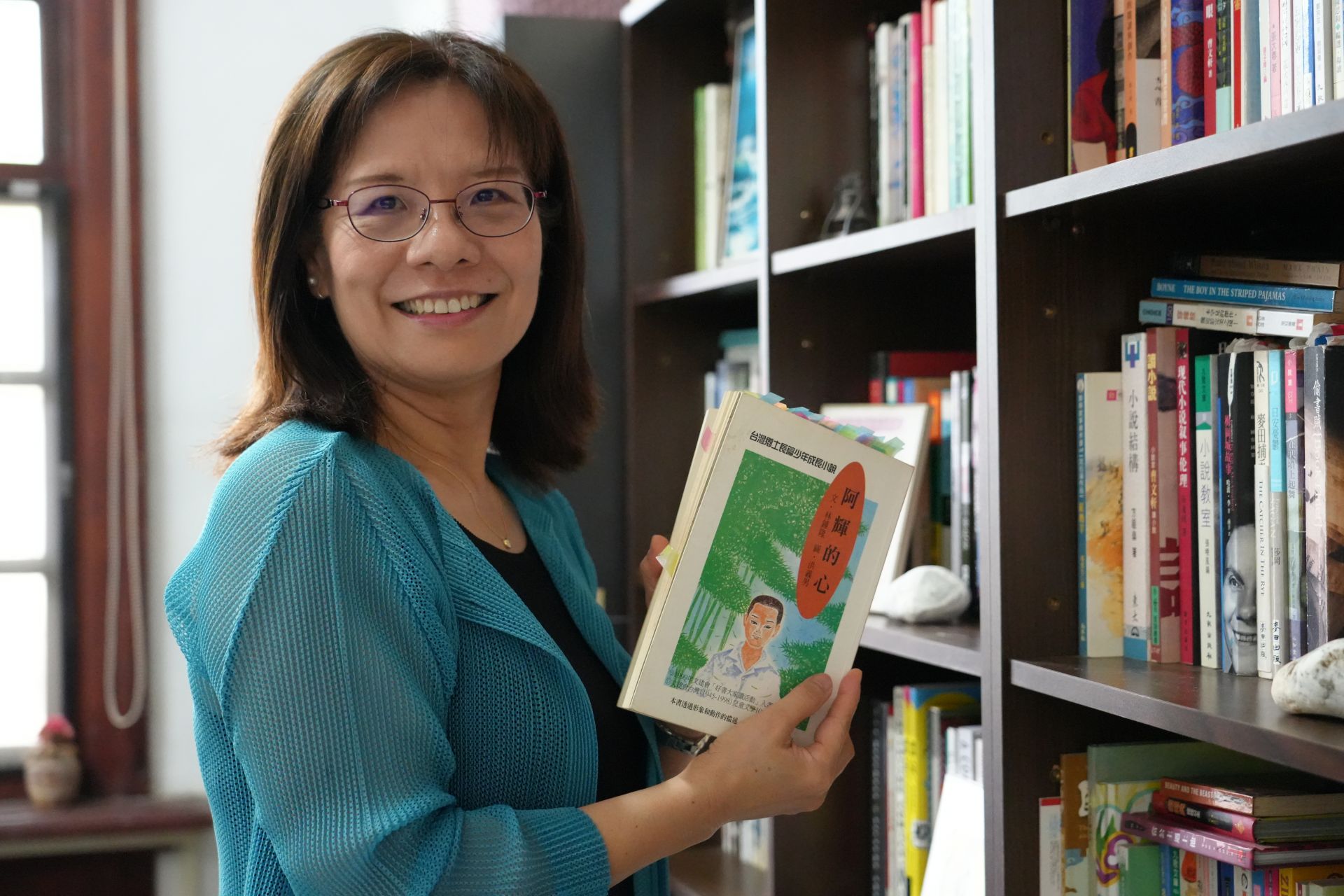
For 20 years, Professor Mei-Ying Wu of the Department of Taiwanese Literature at NCKU has dedicated herself to researching Taiwanese children's literature. She believes that the development of Taiwanese children's literature represents a 'new frontier in humanistic studies' on the international stage.
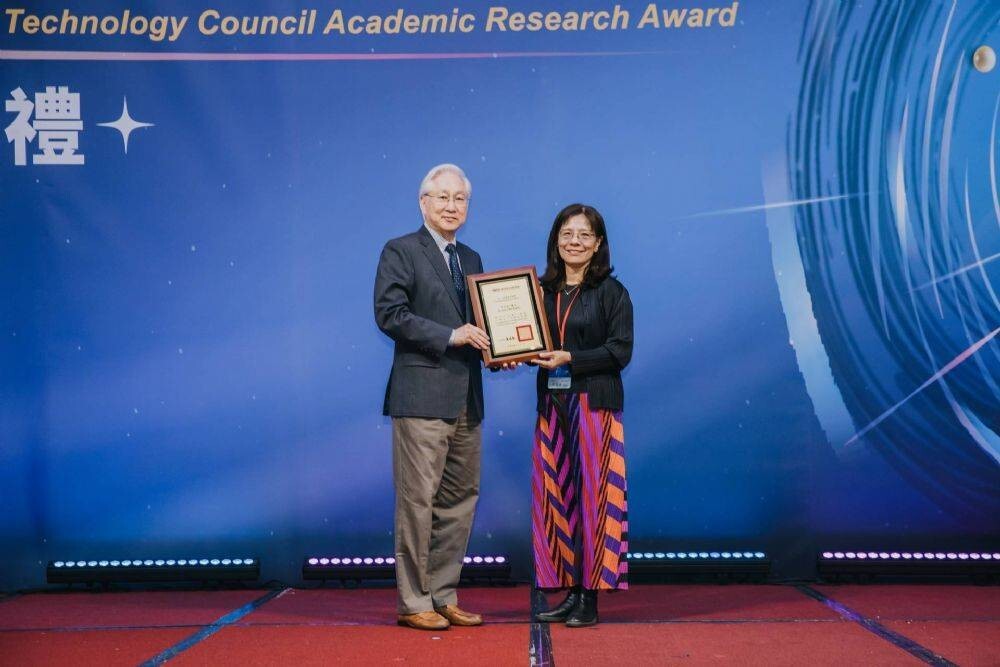
"Professor Mei-Ying Wu (right) of the Department of Taiwanese Literature at NCKU receives the Outstanding Research Award from the National Science Council for the year 111. Pictured on the left is Chairman Cheng-Chung Wu of the National Science Council. (Image provided by Professor Mei-Ying Wu)"
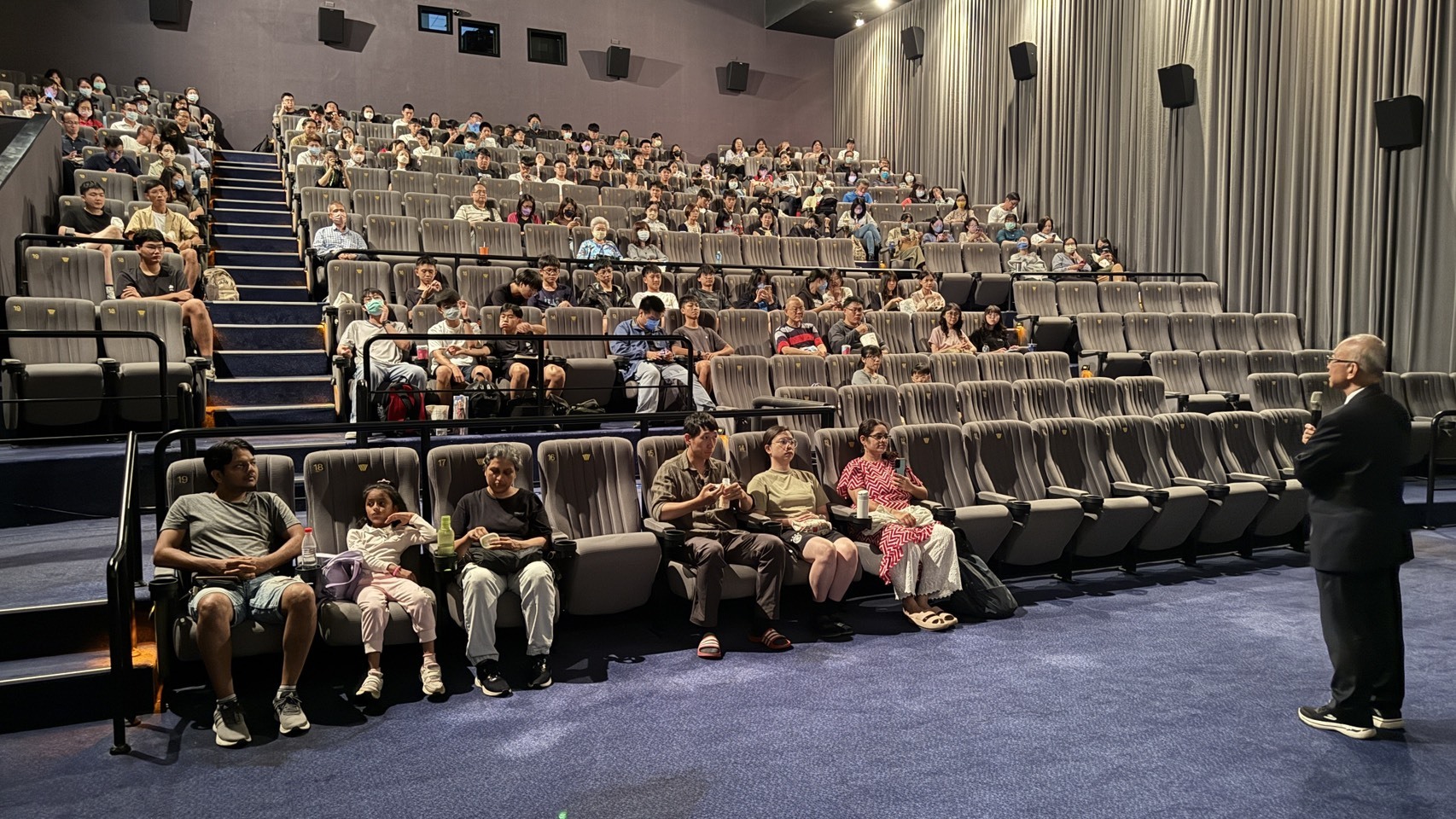
SDG4NCKU Students Watch The Mountain Makers to Reflect on Taiwan’s Semiconductor Legacy and Embrace Industry Commitment
View more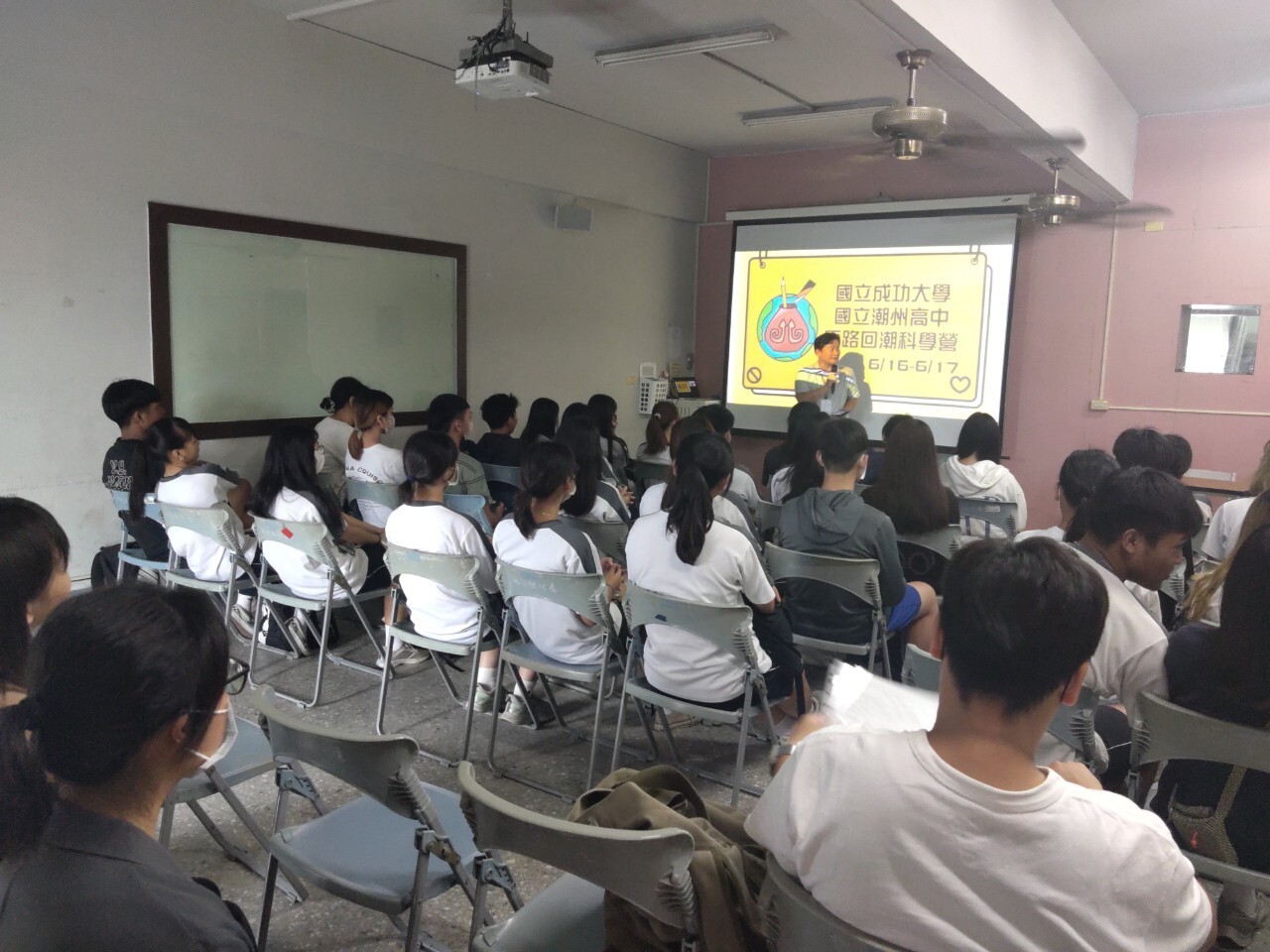
SDG4NCKU and Chao-Chou Senior High's Science Camp: Integrating Science and Indigenous Culture, Garnering Acclaim
View more